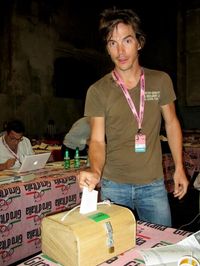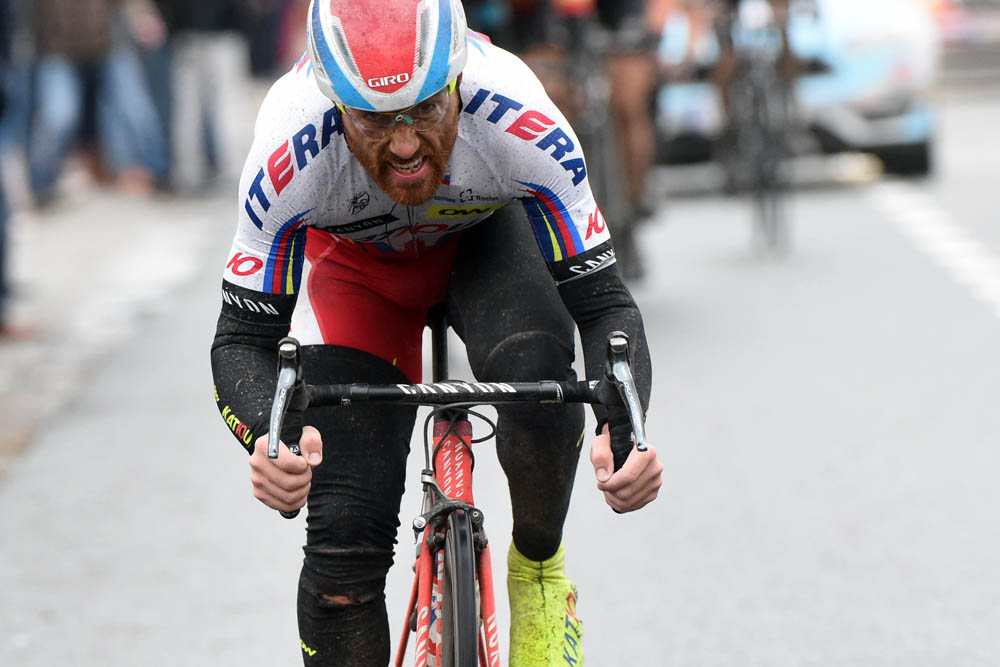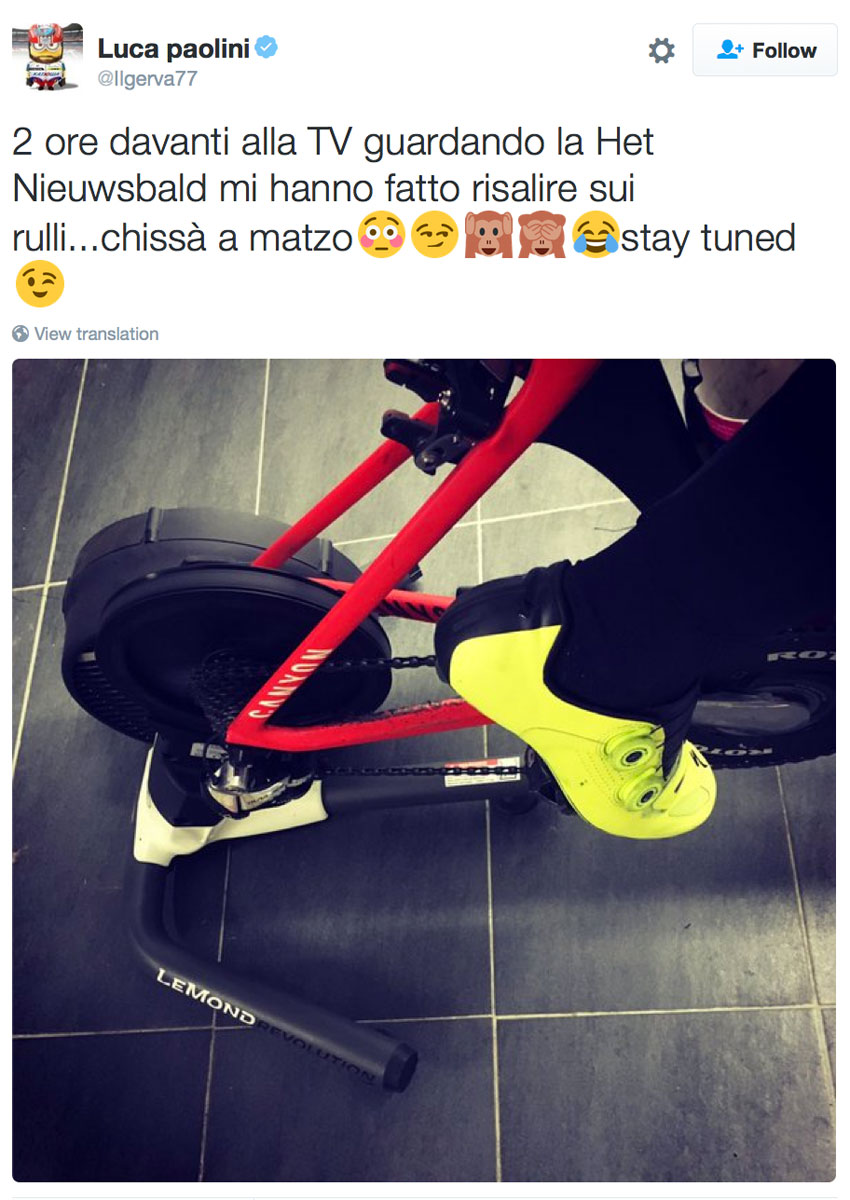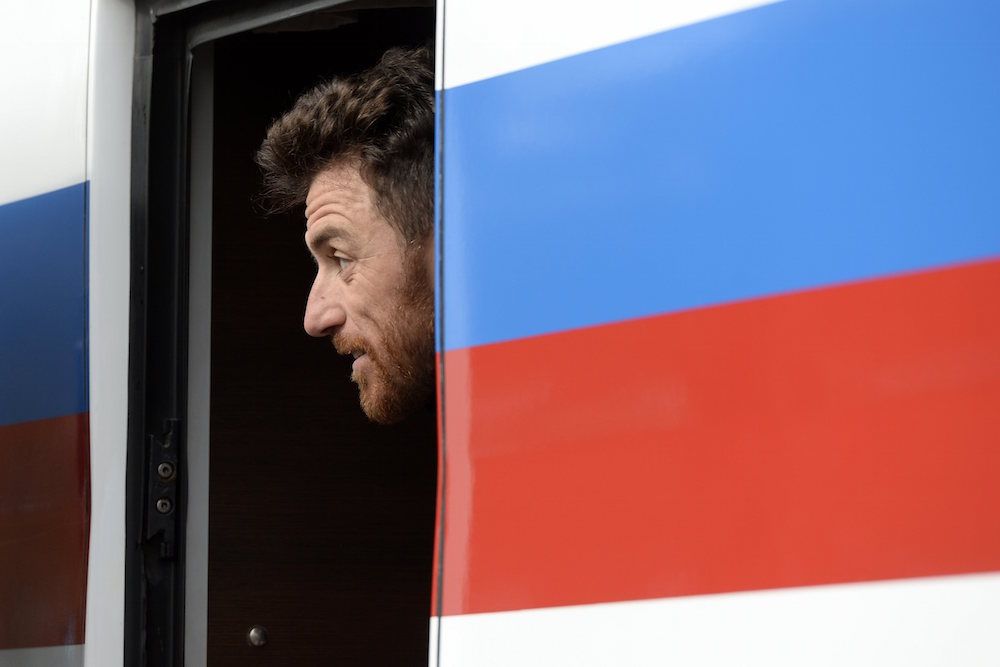Luca Paolini faces UCI hearing over cocaine positive
Italian Katusha rider Luca Paolini seeking to return to racing, but his fate lies in the hands of a UCI tribunal at the end of the week


Italian Luca Paolini hopes to return to racing after failing an anti-doping test for cocaine at the 2015 Tour de France, but that depends on a UCI tribunal hearing this Friday in Geneva, Switzerland.
Team Katusha appears ready to race the 39-year-old who officials expelled from the Tour on July 10. Tests results on July 7, after the cobbled fourth stage, showed the presence of cocaine. Paolini says he only used it in a June training camp, and so it must have lingered in his body, but it is unclear why pre-Tour tests would have failed to pick it up.
Paolini is ready to race. On Saturday, he posted a photograph on Twitter of himself on his Katusha bike training while watching the Omloop Het Nieuwsblad. Instead of accepting a two-year ban, he refused and asked that the newly-created UCI anti-doping tribunal hear his case.

If the tribunal rules in his favour, Paolini could return to competition in time to try to defend his Ghent-Wevelgem title on March 27. Otherwise, the judge could hand him a two-year ban and effectively end his professional career.
Paolini from Milan began racing in 2000 with Mapei. He joined QuickStep, Liquigas, Acqua & Sapone and in 2011, Katusha. When not helping Joaquím Rodríguez and Alexander Kristoff, he took wins in the third stage of the 2013 Giro d'Italia, 2013 Omloop Het Nieuwsblad and 2015 Ghent-Wevelgem.
He is hoping for some leniency. He explained in a La Gazzetta dello Sport interview in December that he had been battling an addition to sleeping medicine Benzodiazepine for years. The drug is not prohibited and Paolini said he purchased it with a prescription.
"Benzodiazepine created a bad dependency," he said. "I needed it at night to rest, to confront the physical and mental effort of the next day. In the last two to three years, I always used it, at home and at the races. I was dependent. Then came cocaine. It was inevitable for me. I took it when I was alone at a pre-Tour training camp in mid-June. It made me open my eyes to the dependency I had on sleeping medication."
The latest race content, interviews, features, reviews and expert buying guides, direct to your inbox!

The UCI's disciplinary commission gave him a sign of hope when it ruled on team Katusha in February. Even though it had two doping cases within 12 months and faced a 15 to 45 day ban, it rode away freely because the commission said Paolini’s cocaine use "was not related to an intention to influence sporting performance but was rather taken on a 'recreational' basis."
>>> Comment: Have Katusha been let off lightly for their failed drugs tests?
Paolini hired lawyers Marco and Federico Cecconi to defend him. They will need to show that he used cocaine only in training and that the drug still lingered in his system on July 7. The World Anti-Doping Agency (WADA) only considered cocaine a banned substance in competition.
German Ulrich Haas, one of the authors WADA's new anti-doping code, will hear Paolini's case and decide. Haas, working for the Court of Arbitration for Sport (CAS), sentenced Alberto Contador and Alejandro Valverde, and recently rejected Valentino Rossi's Moto GP appeal.
The UCI created the international anti-doping tribunal to avoid questionable decisions by national federations. In its first case, it handed a four-year ban to Frenchman Lloyd Mondory for EPO use. Paolini will be its second case.
Gregor Brown is an experienced cycling journalist, based in Florence, Italy. He has covered races all over the world for over a decade - following the Giro, Tour de France, and every major race since 2006. His love of cycling began with freestyle and BMX, before the 1998 Tour de France led him to a deep appreciation of the road racing season.
